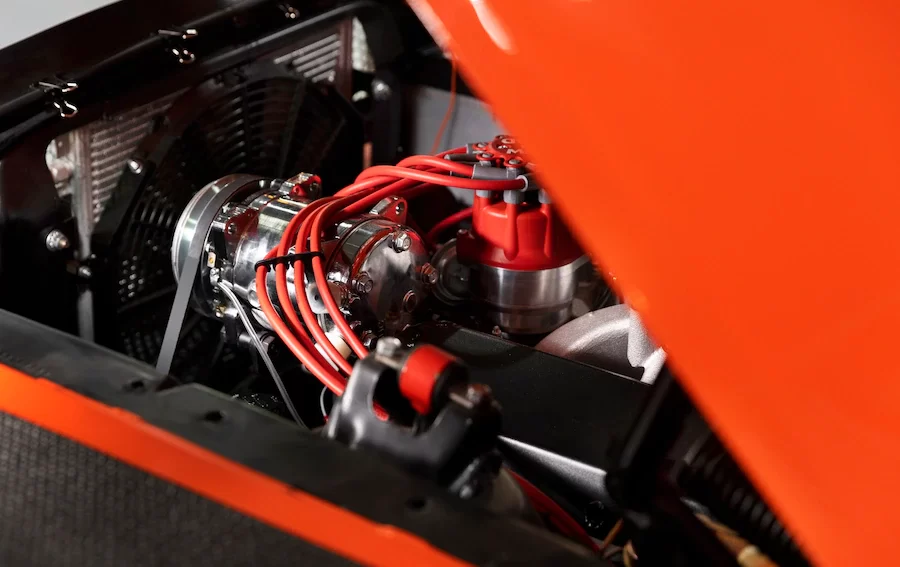The Future Of Alternators And Generators: A Complete And Comprehensive Guide

Alternators and generators are often confused, and for good reason. They both generate a current from mechanical energy, which can be used to power electrical components, but the way they do it is slightly different.
Understanding the difference between alternators and generators is crucial to finding the suitable component for your project or device. In this article, we explore the similarities and differences before helping you to decide which one you may need.
What Is An Alternator?
An alternator is a device that converts incoming mechanical energy into AC electrical energy, also known as alternating current. One uses them in cars to charge the battery and power the electrical components.
Alternators work by rotating a magnetic field around a fixed central armature, inducing an electric current when the magnetic field is disturbed as it spins. You can call it alternating current because the polarity of the field is constantly switched while spinning around the stator.
They are the more efficient of the two because they conserve energy when not in use and only use what is required. You can consider it the upgraded version of a generator, although each has its own merits in different settings.
How Does An Alternator Work?
There are three primary elements of the battery’s charging systems. The battery, the generator, and the Alternator. The alternators’ location is generally near the front of the motor. The crankshaft drives them.
They allow the downward movement of the pistons into a circular motion. Many alternators get connected to the engines through brackets.
Moreover, they connected to a specific point there. One particular bracket has a fixed point. On the other hand, you can modify the bracket to tighten the driving belt.
Electromagnetism is the fundamental technology that powers the alternators. Here, the electricity gets transmitted into the battery. The different electrical systems generally work with a voltage.
Read Also: Steps To Designing A New Tech Hardware Product
The Concept Of The Generator
A generator converts mechanical energy into AC or DC (direct current) electrical energy. It delivers power constantly when operational. This is why one uses them for temporary power generation on building sites or as emergency supplies in homes and offices.
In contrast to an alternator, the magnetic field is fixed in the surrounding housing in which the stator rotates. The commutator connects the spinning armature or slip ring, depending on the type of current that needs to be generated.
How Does A Generator Work?
The generator does not create electricity. They help convert mechanical energy or chemical energy into electrical energy. They do this by capturing the power of motion. Thus, they transform mechanical energy into electrical energy.
It forces the electron from an external source through an electrical circuit. The electric generator’s basic principle is based on the electromagnetic induction principle. This creates an electric current by moving the wire next to a magnet. This is how a generator works.
Is The Alternator Or Generator The Same?
So, you are now aware of the fundamental principle that works in the Alternator and the generator. Do you think that the generator or the Alternator is the same? Let us try to find out the fundamental difference between both mechanisms.
The generator converts mechanical power into fuel or electricity. It has got a coil that rotates its axis. Two slip rings connect the two ends of the coil. The coils rotate around the axis in the magnetic field. The slip ring absorbs the current of the coil. It then transfers it into the external load resistance R.
That is the armature or the copper-made armature. However, let us see how similar or different they are in terms of functionality. Let us find it out here to understand things better.
Conversion Of Energy
The generator converts the converter mechanical energy of the mover into the direct current or alternative current. On the other hand, the Alternator converts mechanical energy from the mover into an alternative current.
Rotation Specifics
The generator has a rotating magnetic field that helps generate high voltage. An alternator, on the other hand, has a rotating magnetic. The armatures of the Alternator are stationary and rotated in a generator.
Output Voltage
The generator’s output voltage is constant, which is stationary for that of the alternator. The Alternator does not charge the battery, but the generator does. Finally, the Alternator’s output is more potent than the generator’s.
From this comparison, one could easily understand that there is a difference between the generator and the Alternator.
What To Look For When You Are Buying An Alternator And A Generator?
The question that may rotate on your like Alternator is what features to look for when buying an alternator. You got it right; we are discussing the alternator buying guide.
Select an alternator with an output of 50% or more compared to the recorded usage. It can help you meet your requirements. At the same time, you have to look at some other crucial aspects like voltage regulations and alternator size. The noise level of the Alternator and the warranty you get with the help of the Alternator.
On the other hand, when buying a generator, you need to look for different specifications. They include the type of fuel, the performance, the safety features, the model’s coil wire, sound, and some other essential aspects.
Do I Need An Alternator Or Generator?
The power generation device you need depends on the type of current you require.
If you need AC, you could use it either depending on how much power you need to generate and in what application. Cars almost always need alternators because they can conserve energy when it’s not required – like when the battery is already full.
If you need DC, you’ll need a power generator. Generators output at a constant voltage, making them better for consistent power demands such as powering equipment, facilities, and infrastructure networks.
Consult the expertise of a trained professional if you’re unsure about electrical systems and the devices that you need.
Read Also:


























Leave A Reply